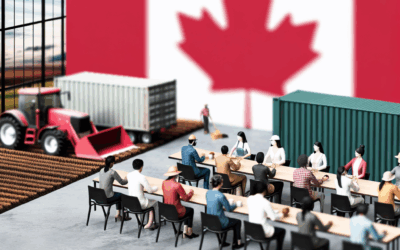Public transit is a cornerstone of urban life in Canada, providing millions of people with an affordable and sustainable way to commute. However, the system is increasingly plagued by delays and underfunding, creating significant challenges for both commuters and cities. These issues not only disrupt daily routines but also hinder efforts to reduce traffic congestion and lower carbon emissions. As Canada’s population grows and urban centers expand, the strain on public transit infrastructure has become more apparent. This article delves into the root causes of these problems, explores their impact on communities, and examines potential solutions to ensure a more reliable and efficient transit system for the future.
The Growing Demand for Public Transit
Canada’s urban population is on the rise, with more people moving to cities in search of employment and opportunities. This influx has led to increased demand for public transit services, as many residents rely on buses, trains, and subways for their daily commutes. However, the existing infrastructure has struggled to keep pace with this growth. Overcrowded vehicles, longer wait times, and frequent delays have become common complaints among commuters. The lack of investment in expanding and modernizing transit networks has only exacerbated these issues, leaving many cities ill-equipped to handle the growing demand.
The Impact of Underfunding on Transit Systems
Underfunding is one of the most significant challenges facing public transit in Canada. Many transit agencies operate on tight budgets, which limits their ability to maintain existing infrastructure, purchase new vehicles, or hire additional staff. This financial strain often results in deferred maintenance, leading to breakdowns and service disruptions. Additionally, underfunding hampers efforts to implement new technologies or expand routes to underserved areas. Without adequate financial support, transit systems cannot meet the needs of their users, creating a cycle of inefficiency and frustration.
Delays and Their Consequences
Delays in public transit have far-reaching consequences for commuters and cities alike. For individuals, frequent delays can lead to missed appointments, late arrivals at work, and increased stress. On a larger scale, unreliable transit systems discourage people from using public transportation, leading to more cars on the road and higher levels of traffic congestion. This, in turn, contributes to increased greenhouse gas emissions, undermining efforts to combat climate change. Addressing delays is not just a matter of convenience; it is essential for creating a more sustainable and livable urban environment.
Regional Disparities in Transit Funding
While public transit issues are widespread across Canada, there are significant regional disparities in funding and service quality. Major cities like Toronto, Vancouver, and Montreal often receive more attention and resources, while smaller cities and rural areas are left with inadequate transit options. This imbalance exacerbates inequality, as residents in underserved areas face greater challenges in accessing employment, education, and essential services. Addressing these disparities requires a more equitable distribution of funding and a commitment to improving transit infrastructure across the country.
Potential Solutions for a Better Future
To address the challenges of delays and underfunding, a multi-faceted approach is needed. Increased government investment is crucial to modernize infrastructure, expand services, and improve reliability. Public-private partnerships could also play a role in funding new projects and innovations. Additionally, adopting smart technologies, such as real-time tracking and automated systems, can enhance efficiency and reduce delays. Public engagement is equally important; involving communities in decision-making processes ensures that transit systems meet the needs of their users. By prioritizing these solutions, Canada can build a more resilient and effective public transit network.
In conclusion, public transit delays and underfunding are pressing issues that require immediate attention in Canada. The growing demand for transit services, coupled with inadequate funding, has created significant challenges for commuters and cities alike. Delays not only disrupt daily life but also hinder efforts to create sustainable urban environments. Regional disparities in funding further exacerbate these problems, leaving many communities underserved. However, with increased investment, innovative solutions, and a commitment to equity, Canada can overcome these challenges and build a public transit system that meets the needs of its growing population. The time to act is now, for the benefit of both current and future generations.



